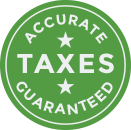Housing Allowance: Church Owned Parsonage vs. Renting vs. Owning
Federal Income Tax: Parsonage allowances: Ministers who live in a church-provided parsonage do not pay federal income taxes on the amount of their compensation that their employing church designates in advance as a parsonage allowance, to the extent that the allowance represents compensation for ministerial services, is used to pay parsonage-related expenses such as utilities,…
2014 Charitable Contributions Bulletin Inserts
Help your members give more by answering their charitable giving and tax law questions. Donors may be unaware of the significant tax deductions they can claim by properly reporting their charitable contributions, educate your donors by providing them with these easy-to-use question and answer format inserts. Simply place an insert in your church bulletins, newsletters,…
Charitable Contributions Through Payroll
Church employees wishing to make charitable contributions to their church can do so through a payroll deduction. This deduction must be set-up as an after-tax deduction in the church’s payroll system. The charitable donation deduction through payroll is only done for convenience purposes and does not provide an immediate tax benefit. On the employee’s tax…
Medical expense deduction becomes less generous
Clergy Tax Law Alert: Beginning in 2013, medical expenses for most clergy are only deductible to the extent they exceed 10% of your AGI, up from 7.5%. This change was enacted as part of the health care reform bill. It does not yet affect clergy 65 and older, who can still use the 7.5% AGI…
Benevolence Policy Tips for Churches
We recommend that each church establish its own written benevolence policy. An appropriate policy would include the following: Description of the purpose of the benevolence program (e.g. to provide support to the poor and needy). Criteria to be used to determine whether a person qualifies to receive benevolent gifts (e.g. income limitations, distressed situation, loss…
Using a Church Credit Card?
Churches often provide their employees with church credit cards. The church should have a credit card policy which indicates the card should never be used for employee’s personal expenses and should only be used for ministry related expenses. If personal expenses have been paid with this card, these amounts do need to be reported as…
FSA? HSA? What do all these acronyms mean?
Health Flexible Spending Account (FSA) – tax-advantaged account that allows plan members to set aside pre-tax dollars for eligible health care expenses. Money not used by the end of the year (or any grace period) is forfeited. Health Spending Account (HSA) – allows both plan members and employers to make pre-tax contributions that can be…
Donations to charitable organizations?
All types of donations, from cash to cars, could be valuable tax deductions, so make sure you count them all when you file. Be sure to follow the donation tax rules, the most important being that you give to a qualified organization — that is, one that has tax-exempt status with the IRS. Also be…
FAQ’s – IRS and the Government Shutdown
Will I still have to meet the October 15 deadline? Yes. Regular filing deadlines will remain in effect during the shutdown. So anyone who requested an extension on their taxes last spring should still file their returns by October 15. The IRS is urging individuals to file their tax returns electronically because those returns are…
Government Shutdown and the IRS
Clergy should keep filing their tax returns and making deposits with the IRS, as they are required to do so by law. The IRS will accept and process all tax returns with payments, but will be unable to issue refunds during this time. Clergy are urged to file electronically, because most of these returns will…






